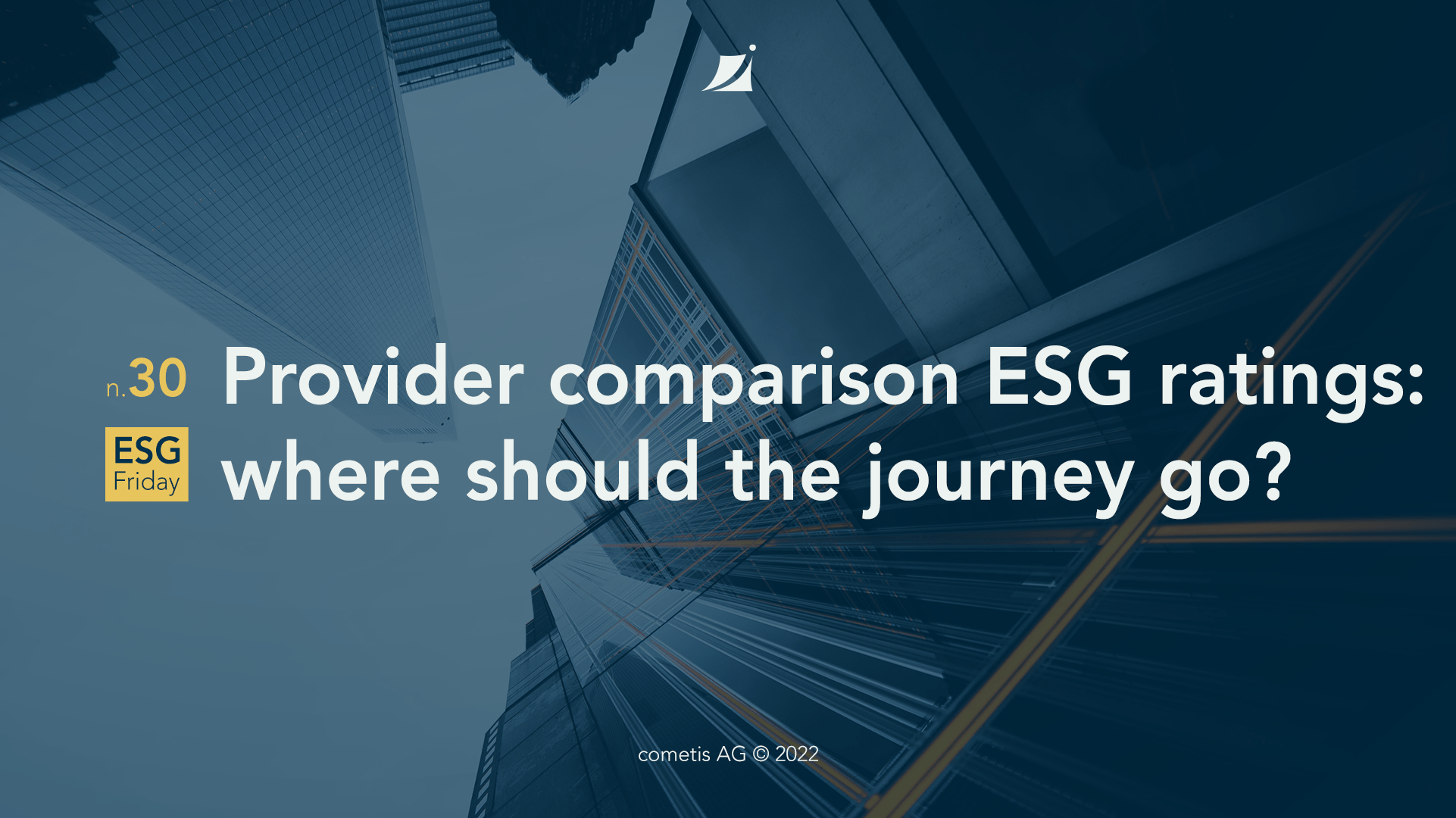There are a large number of different ESG ratings worldwide: there are now more than 160 different ones. But which rating suits your company? A comparison is worth it.
Wiesbaden, November 5, 2021. The boom in the ESG sector continues and leads to the fact that the selection of providers of ESG data is constantly growing. But which provider is important and which is not? Due to the multitude and the lack of comparability of ESG ratings, a sensible prioritization is required. This is because even the major ESG rating agencies, such as MSCI ESG, Sustainalytics and ISS ESG, for example, sometimes draw on widely differing criteria against which to measure the ESG performance of companies.
Here’s how ESG rating providers differ
But while ESG ratings are not directly comparable, at least the ESG rating agencies themselves can be compared. For example, the consulting firm SustainAbility conducted a provider comparison in its 2019 and 2020 “Rate the Raters” reports. A total of eight international rating providers were examined: With ISS ESG, MSCI ESG, Sustainalytics and RobecoSAM (meanwhile taken over by S&P), four classic ESG rating agencies were examined, which are the most renowned internationally. The other four were Bloomberg ESG, CDP, FTSE Russell & Thomson Reuters ESG.
But how do the rating agencies differ? First, in the nature of their analysis process. While ISS, MSCI, Sustainalytics and RobecoSAM rely on a combination of algorithms and human ESG analysts for their ESG ratings of companies, Bloomberg and Thomson Reuters go purely with algorithms and CDP relies purely on self-reporting from companies to complete a rating.
Another common category of comparison is the number of companies already rated. For the major agencies, the number ranges from about 8,000 currently (S&P) to more than 14,000 (MSCI). In addition, agencies have been active in the ESG market for different lengths of time and belong to different supergroup:
This consolidation is a characteristic of the ESG market and goes hand in hand with another comparison criterion: reputation. MSCI and Sustainalytics are currently considered the most important ESG rating agencies by investors worldwide, closely followed by ISS ESG, which is likely to gain in importance in the future due to its acquisition by Deutsche Börse, especially for the German market. Other agencies are still in the chasing pack – with credit rating agencies in particular pushing strongly into the market. S&P, for example, has taken a big step forward with its acquisition of RobecoSAM, and Moody’s with its takeover of VigeoEiris.
Companies should compare on an industry basis
Furthermore, the providers differ in their methodology: For example, MSCI’s rating reports are comparatively non-transparent and it is difficult to draw concrete conclusions, while ISS is very open in both indicator description and weighting. The duration of the rating process can also vary: in the case of an engagement, the duration ranges from six to twelve weeks, depending on the provider. Finally, the weightings of E, S and G for one and the same industry differ significantly between agencies.
The latter is particularly important for companies that are already rated by ESG rating agencies. This is because it is no longer sufficient to focus on just one ESG rating – rather, efforts should be made to match the criteria of as many of the top ESG rating agencies as possible to ensure that the broadest possible investor base, which often only uses 1-2 ratings, is also covered. To accomplish this, a well-structured ESG database is a good idea, which cometis can help companies to build. In such a database, changes in ratings and rating criteria can also be reflected in a simple way, which facilitates the annual ESG data collection work.
For companies that are about to go public or are listed but are still too small to come into the focus of ESG rating agencies (rule of thumb: if you are at least in the SDAX in Germany, you will certainly already be rated – otherwise not necessarily), it can again be worthwhile to have a rating commissioned. An ESG rating gives external confirmation and thus credibility to your own ESG information. This helps convince investors and stakeholders of the company’s ESG aspects.
But which ESG rating agency makes sense for this? On the one hand, it should be noted that some rating agencies, such as MSCI, do not offer solicited ratings. On the other hand, the price difference between the rating agencies is also likely to be important for smaller companies – here, the “big names” are usually significantly more expensive than smaller, specialized providers. In terms of content, the selection should take place on the basis of the weightings of the agencies and the respective reputation and, especially in the case of an IPO, the duration of the rating process should be taken into account.
Do you want to commission an ESG rating, but don’t know with whom? Or improve existing ESG ratings? Then cometis is your right contact: Feel free to get in touch!

Justus Fischer has gained experience in various ESG and IR communication projects across several industries. He also coordinated a cross-media content marketing campaign for an international technology group. Justus studied media science, rhetoric and literature at the universities of Tübingen, Bielefeld and La Plata (Argentina).



